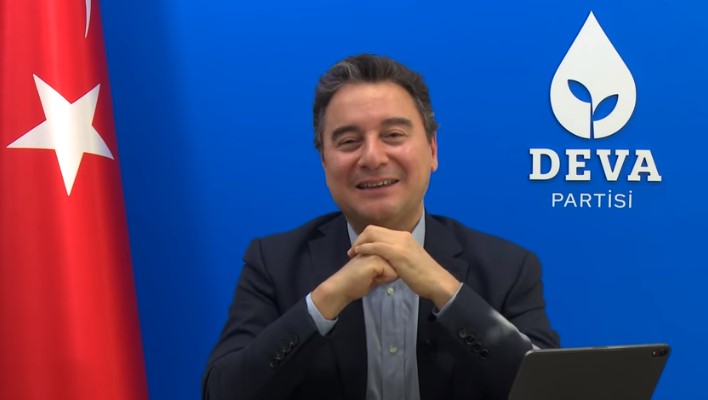The prospect of holding snap elections in Turkey has become the focus of debate recently in various political circles.
The potential election dates are predicted for November of this year or May 2021, rather than for 2023 as planned.
An enduring recession, skyrocketing unemployment rates reaching 14 percent and a freefall of the Turkish lira against the dollar are likely to exacerbate the economic fallout of the pandemic on different segments of society and could spark early elections.
Any sanctions over the acquisition of the $2.5 billion Russian-made S-400 defense system, either from the US if the system is activated or from Russia if it is kept on the shelves, may also devastate the national economy and increase popular dissatisfaction.
Some opinion polls have also indicated a rise in popularity of Ahmet Davutoglu and Ali Babacan, the leaders of two alternative parties that broke away from the ruling Justice and Development Party (AKP).
These two splinter parties — Babacan’s Democracy and Progress Party (DEVA) and Davutoglu’s Future Party — that appeal not only to the opposition but also to some disillusioned voters of the AKP are expected to receive about 10 percent of the votes. They are also expected to prevent the AKP from forming the majority in parliament even it forms an alliance again with the Nationalist Movement Party (MHP).
Similarly, Babacan, former economy tsar and once a close friend of Turkish President Recep Tayyip Erdogan, recently claimed in an interview that the president would not remain in power until 2023.
Senior officials from the AKP deny for the moment any snap election to be on the country’s agenda, but popular debates on this possibility are brewing.
Professor Emre Erdogan, expert on electoral behavior from Istanbul Bilgi University, expects an early election by autumn 2022 at the latest.
“The election date will be decided upon by a majority in the parliament. Therefore, the AKP will need the support of its nationalistic ally. Now the key question is whether the date of the snap elections might be closer than 2022,” he told Arab News.
However, experts underline that the ongoing economic problems and the skyrocketing unemployment rates in the country, both of which preceded the coronavirus disease (COVID-19) outbreak, may discourage the government from calling for immediate snap elections.
“The cost of the currency crisis of 2018 was paid with the loss of big cities like Istanbul, Ankara, Antalya and Adana to the opposition parties in the local elections,” Prof. Erdogan said.
Ankara Mayor Mansur Yavas, from the main opposition Republican People’s Party (CHP), has seen his approval rating rise recently with several fundraising campaigns that reached out to needy segments in the capital city. A recent poll by private pollster Metropoll on public perception of pandemic governance ranked him third, surpassing Erdogan, who came in fourth.
Yavas, a 64-year-old politician with a nationalistic background, is seen positively even by 80 percent of the mainly Kurdish People’s Democratic Party.
However, for Prof. Erdogan, the new parties attract more sympathy from voters of the opposition parties than voters of the AKP, whom they want to attract.
“Success of these new parties is contingent upon the failure of AKP-MHP alliance. As AKP voters switch at most to the MHP and not to the opposition parties despite the economic downturn, the new parties will not receive much electoral support unless there is a bigger economic crisis. Having said this, what is expected from them is to gain enough votes to prevent the AKP-MHP alliance from winning the election in the first round,” he said.
Soner Cagaptay, director of the Turkish Program at the Washington Institute, thinks early elections are not completely implausible.
“Erdogan might want to nip the opposition in the bud before it boils up further,” he told Arab News.
According to Cagaptay, democratic resilience is strong in Turkey, which has had a multiparty democracy since 1950 with fair and free elections.
He also said that the ruling AKP faces the challenge of a backlash from millennials — a generation that has not known economic crisis before and that is dissatisfied with the ruling government’s socially conservative policies.
“The biggest challenge is the economy. This might not be the right time because the economy is not doing so well, and Erdogan’s popularity is down. But his popularity will plummet further because the economy was already shrinking and entered recession for the first time since he came to power,” Cagaptay noted.
Experts therefore claim that the ruling government is likely to see an opportunity to go to snap elections before things get worse.
“Since 2018, Erdogan has lost his ability to be the leader always ahead of the curve in Turkish politics. There was a time when, whether you liked him or not, Erdogan represented change in Turkey; he was always the one who came up with ideas and or solutions and other people copied and followed him, including the opposition. Now it is opposition figures who come up with ideas, which Erdogan’s palace then coopts or embraces. We saw this in the response to every popular initiative launched to fight the pandemic, from lockdown to masks to fundraising campaigns. They were all launched by the opposition. At this stage, although Erdogan rules and governs Turkey, the opposition leads,” Cagaptay said.
In April 29, Canan Kaftancioglu, Istanbul district head for the CHP, noted during a televised speech that she expected early elections for a change in both the government and the governance system of the country, which switched to the controversial form of presidential system last year.
Kemal Kilicdaroglu, leader of the CHP, said on Thursday that a number of CHP lawmakers could leave the party and join the DEVA and Future parties to secure their participation into the elections and be represented in the parliament.
